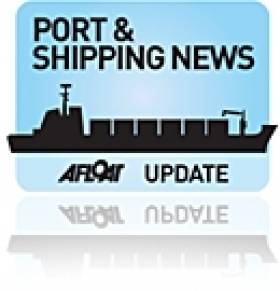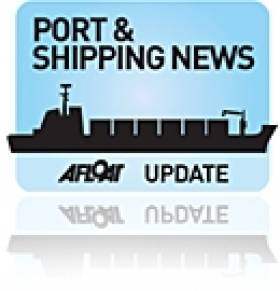Displaying items by tag: BW Seine
Ship-to-Ship Transfer of OIl Cargo Delayed Yet Again
#SHIPPING - The transfer of hazardous cargo from the stricken tanker at the entrance to Belfast Lough has been delayed yet again due to winds nearing hurricane strength.
The Belfast Telegraph reports that the Genmar Conpanion - which was redirected to Belfast after reporting a cracked hull en route from Rotterdam to New York - will remain sheltering off the Copeland Islands until the weather improves.
As previously reported on Afloat.ie, the ship-to-ship transfer of 54,000 tonnes of vacuum gas oil was originally scheduled to take place on 31 December last, but the task was pushed back as the receiving ship, BW Seine, was delayed by weather in the North Sea.
It had then been hoped to begin the transfer early yesterday with the receiving ship's arrival, but the strong storm-force winds that have increasingly battered Ireland in the last 36 hours put paid to those plans.
Ship-to-ship transfers can take place in wind speeds of up to 35 knots, but yesterday the wind speed in Belfast Lough was reported as more than double that.
Hugh Shaw, the NI Secretary of State's representative for maritime salvage and intervention, told the Belfast Telegraph: "As soon as we have a window to do the ship-to-ship transfer safely we will take it.
"Winds have been dropping a bit, but it looks unlikely the operation will take place on Wednesday."
Transfer of Cargo from Stricken Tanker Delayed
#SHIPPING - The transfer of cargo from the damaged oil tanker sheltering at the entrance to Belfast Lough has been posponed for at least two more days.
As previously reported on Afloat.ie, the 228-metre Germar Companion - which is carrying 54,000 tonnes of vacuum gas oil - was redirected to Belfast after reporting a cracked hull en route from Rotterdam to New York.
The merchant vessel has been sheltering off the Copeland Islands since 16 December, where an official examination recommended removal of the cargo.
Today (31 December 2011) had been the scheduled start date for the move of the tanker's hazardous cargo by ship-to-ship tranfer. But the move has been delayed as the second ship, the BW Seine, is still en route to Belfast Lough.
"It is currently in the North Sea and could take another two days before it reaches the vessel and starts to transfer the cargo," a coastguard spokesperson told the Belfast Telegraph.
The transfer will be managed by specialist company Fendercare Marine in the lough, and could take between 24 and 36 hours. Once finished, the Germar Companion will sail into Belfast for repairs.

























































